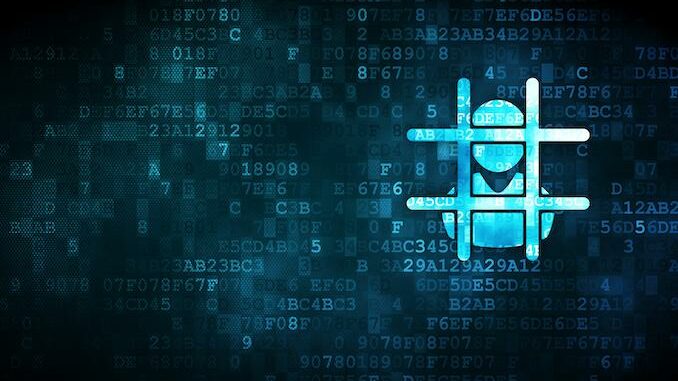
“Always carry a flagon of whiskey in case of snakebite and furthermore always carry a small snake.” ~ W.C. Fields
By Catherine Austin Fitts
Our lives have increasingly been shocked by events, often referred to as “false flags,” progressively used to justify more central control. Many of these events have been preceded or accompanied by planning and simulation exercises, which sometimes appear to contribute to the engineering of such incidents.
One of the latest “exercises” to raise serious questions as to whether global leaders, rather than looking to avoid and manage risk, are instead engineering a “problem-reaction-solution,” was Event 201.
Event 201 was a pandemic simulation conducted in October 2019 by the John Hopkins Bloomberg School of Public Health Center for Health Security, the World Economic Forum (WEF), and the Gates Foundation with involvement of former and current members of the U.S. intelligence and national security leadership.
Given the timing of the events related to Covid-19, Event 201 raised unanswered questions about the use of health mandates and restrictions to fundamentally reengineer global governments and access to resources—not to mention engineering a significant increase in the size and wealth of the billionaire class—all of which constitute a de facto global coup d’état.
Event 201 occurred on October 18—immediately after the start of the new federal fiscal year on October 1, 2019. This was also one year after the adoption of Federal Accounting Standards Advisory Board Statement 56 (FASAB 56) as an administrative policy permitting the government to run secret fiscal books. With the closing of the 2019 fiscal year, the federal government had the capacity to run a trillion-dollar budget and Treasury market entirely behind the secrecy screen of “national security.” The potential flexibility this secrecy offered for the financing and cover operations of the global coup was unprecedented.
The International Monetary Fund (IMF) recently announced that it sponsored, on December 9, “war games” simulating a major cyberattack on global financial markets and banks. Israel led the exercise, dubbed “Collective Strength,” with the participation of five of the G7 nations (U.S., U.K., Germany, France, Italy—Japan and Canada were not included) as well as Switzerland, the Netherlands, Austria, United Arab Emirates and Thailand. Representatives from the IMF, World Bank and Bank for International Settlements (the “central bank of central banks”) also participated.
The games included consideration of the impact of “fake news” on the financial markets and contemplated extreme interventions, including “a coordinated bank holiday, debt repayment grace periods, swap/repo agreements and coordinated delinking from major currencies.”
The IMF war games took place five months after July’s Cyber Polygon 2021, a WEF-sponsored simulation of cybercrime that focused on global supply chains and disruptions.
What is the meaning of the IMF war games? As with Event 201, we are left with many unanswered questions.
What we do know is that the push is on to build an all-digital financial control system using vaccine passports and central bank digital currencies (CBDCs), which will confer central bankers with significant—if not complete—
We also know that central bankers continue to aggressively promote vaccine mandates despite overwhelming scientific and medical evidence that the injections are producing more death and disease than the phenomenon called Covid-19.
In addition, we know that regulators in both the United States and European Union have been working steadily since the 2008-2012 financial crisis to develop a regulatory structure that can easily engineer bail-ins permitting the funding of liquidity problems and fraudulent collateral shortfalls with depositors’ assets and retirement savings. Given recent moves to assert greater oversight over the cryptocurrency markets, this could also include controls on or access to the taking of traditionally unregulated digital assets.
Given the escalating pushback around the world against the global coup, is it possible that central bankers and intelligence agencies would engineer cyberattacks and bank bail-ins to try to force vaccine mandates and passports? Or, watching retail investors’ growing concern about the integrity of financial markets and the deterioration in the rule of law, are these players just worried about the dependency of the large global banks on the repo and short-term markets?
Whether the issue is mismanaged markets, theft, or the forcing of depositors into totalitarian financial control systems, there are no answers to our many questions that inspire confidence in the current governance or management of central banks and the financial system.
But there is one thing we do know: Nothing good can come from health passports and mandates. As a financial professional, my takeaway from reviewing the description of the IMF war games is simple. Do everything you can to stop vaccine passports and stop health mandates.
If you love liberty, including your financial liberty, then—as Robert F. Kennedy, Jr. reminds us—“resist, resist, resist.”
In from Subscriber:
“Ripley’s ‘believe it or not’ – the U.S. Fed conducted repos of [unwanted] U.S. government debt on Friday, Dec. 17 in the amount of 1.704 Trillion—a new all-time high.
The debt limit was increased on Thursday by $2.5 Trillion but now they need to ‘issue’ new debt to raise cash and bolster the Treasury’s depleted piggy bank in a market that already has 1.704 Trillion in debt ‘looking for a home’ while the Fed’s balance sheet currently stands at $8.756 Trillion [another fresh all-time high].
At what point does complete global U.S. dollar rejection become a reality? My guess—soon.”
